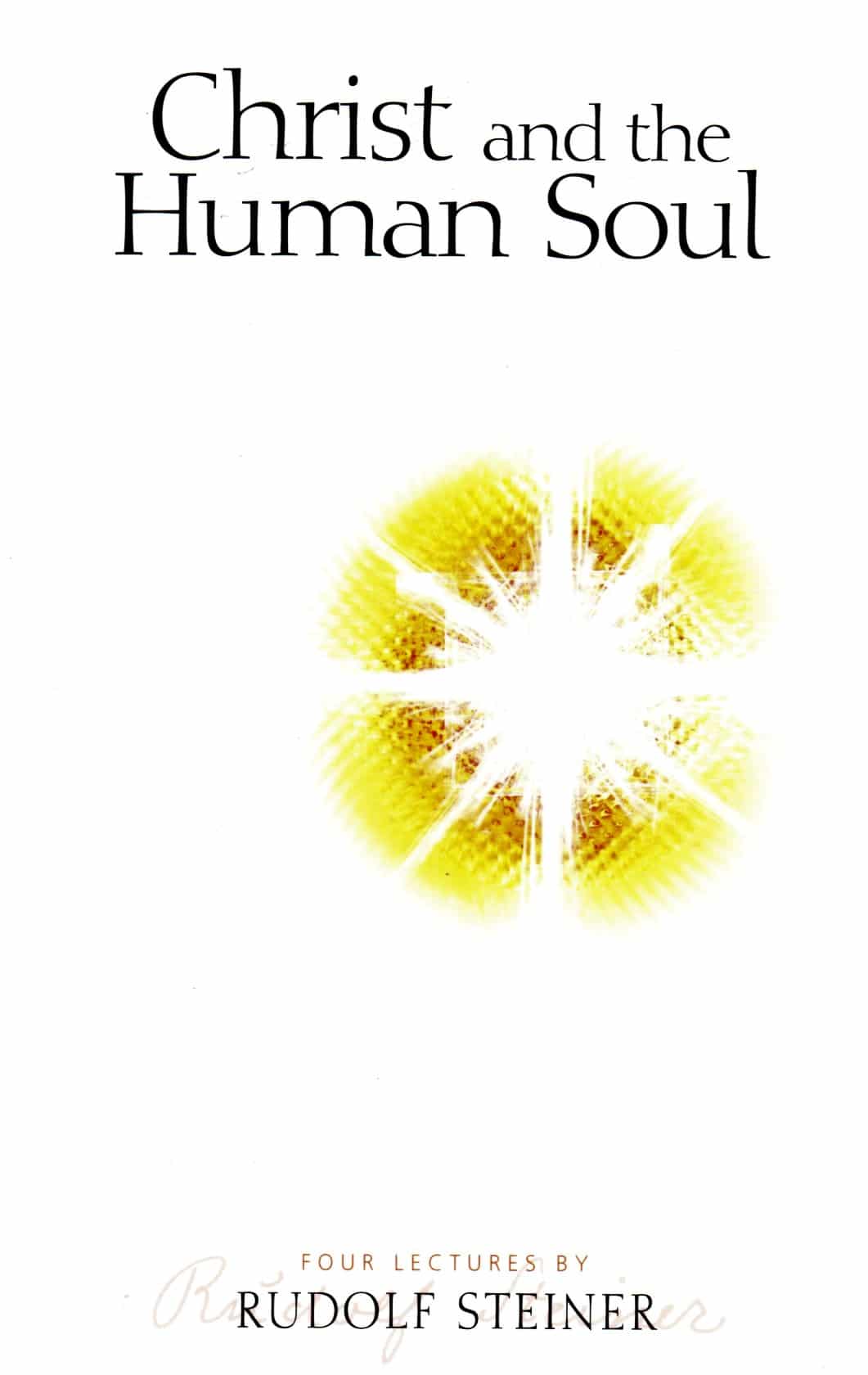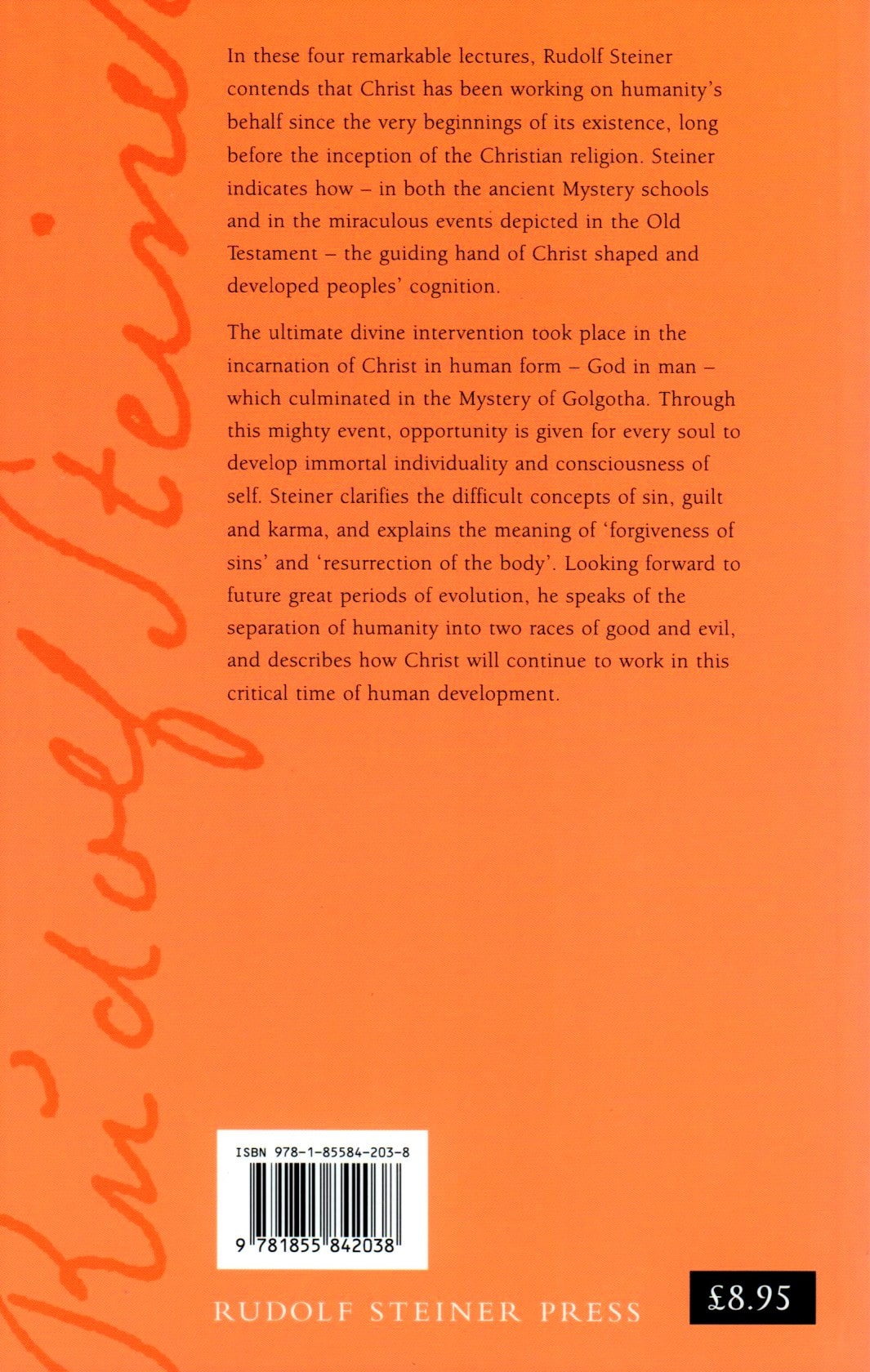Christ and the Human Soul
4 lectures, Norrköping, Sweden, July 12 – 16, 1914 (CW 155)
In these four remarkable lectures, Steiner contends that Christ has been working on the behalf of humankind since the very beginnings of human existence, long before the inception of Christianity. Steiner indicates how—in the ancient mystery schools and in the miraculous events depicted in the Old Testament—the guiding hand of Christ shaped and developed human cognition.
The ultimate divine intervention took place with the incarnation of Christ in human form, which culminated in the Mystery of Golgotha. Through this grand event, the opportunity arose for every soul to develop immortal individuality and “I” awareness. Steiner clarifies the difficult concepts of sin, guilt, and karma and explains the meaning of “forgiveness of sins” and the “resurrection of the body.” Looking forward to future great periods of evolution, he speaks of the separation of humanity into the two races of good and evil and describes how Christ will continue to work in that critical time of human development.
This volume is a translation from German of four lectures of ten in Christus und die menschliche Seele. Über den Sinn des Lebens. Theosophische Moral. Anthroposophie und Christentum (GA 155).
About the Author
Rudolf Steiner (1861–1925) was born in the small village of Kraljevec, Austro-Hungarian Empire (now in Croatia), where he grew up. As a young man, he lived in Weimar and Berlin, where he became a well-published scientific, literary, and philosophical scholar, known especially for his work with Goethe’s scientific writings. At the beginning of the twentieth century, he began to develop his early philosophical principles into an approach to systematic research into psychological and spiritual phenomena. Formally beginning his spiritual teaching career under the auspices of the Theosophical Society, Steiner came to use the term Anthroposophy (and spiritual science) for his philosophy, spiritual research, and findings. The influence of Steiner’s multifaceted genius has led to innovative and holistic approaches in medicine, various therapies, philosophy, religious renewal, Waldorf education, education for special needs, threefold economics, biodynamic agriculture, Goethean science, architecture, and the arts of drama, speech, and eurythmy. In 1924, Rudolf Steiner founded the General Anthroposophical Society, which today has branches throughout the world. He died in Dornach, Switzerland.
















Reviews
There are no reviews yet